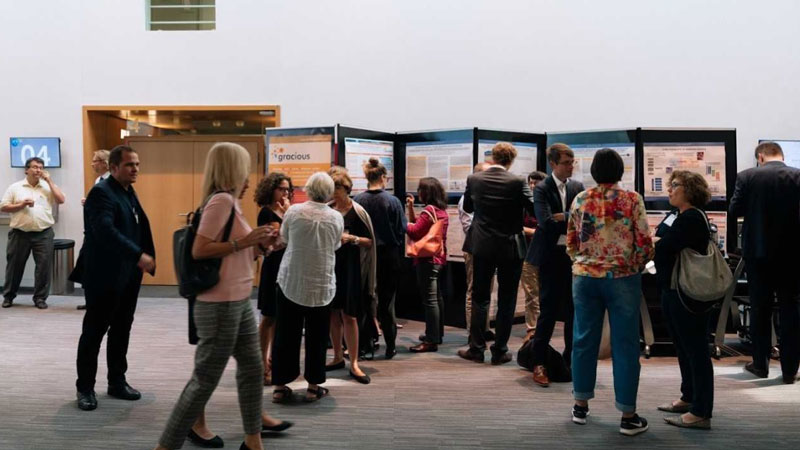Published:

One hundred and twenty nanotechnology specialists from Europe, Asia and North America have been meeting in Paris to advance nanomaterial safety testing globally.
Joined by experts from academia, industry, regulation and policy, the two-day event held at The Organisation for Economic Co-operation and Development (OECD) in Paris, aimed to improve ways to obtain the safety information needed for a successful use of nanomaterials by different sectors.
By building a framework, in partnership with industry and regulators, we can make decisions about the safety of tens of thousands of different nanomaterials without individually testing each one.
Nanomaterials are hundreds of times smaller than the width of a human hair and can be made from many different elements (such as gold, silver and carbon) resulting in materials that are stronger, lighter, more durable and more reactive, among many other traits, than their larger counterparts.
Many products that are in daily use already rely on nanomaterials but the growth of the industry is threatened by safety uncertainties.
Many variations of a single nanomaterial can exist, with differences in size, morphology and surface characteristics. Financial and ethical considerations mean that testing the safety of each variation for its potential harmful effects is virtually impossible.
Being able to group nanomaterials with shared or similar characteristics together (called Grouping) and predicting behaviour of other nanomaterials from those groups (called Read Across), would be a major advance in materials development. It would allow the safe and efficient development of novel nanomaterials, with an understanding of the impact on humans and the environment.
The Paris workshop served as an effective platform for stakeholders to bring their expertise to the design of a science-based framework to enable effective grouping and read-across of nanomaterials. The discussion outcomes will be developed for governments, regulatory agencies and standardisation bodies globally to support the realisation of innovative advanced materials, such as nanomaterials.
The event involved two European Horizon2020 projects, NanoReg 2 and Gracious.
The GRACIOUS Project Coordinator, Professor Vicki Stone from Heriot-Watt University, explains the expected impact of the workshop: “To ensure that nanomaterials are safely used, their toxicity needs to be assessed and its results applied globally. Addressing the safety of nanomaterials is high on the agenda of the OECD, which now has a working party dedicated to this issue.
“As regulators are now more receptive to non-animal, alternative models of assessing safety, we are developing a framework based on predictions about the toxicity of nanomaterials. This will be achieved by grouping those with similar properties that have already been assessed.
“By building a framework, in partnership with industry and regulators, we can make decisions about the safety of tens of thousands of different nanomaterials without individually testing each one. Given the close partnership in this project between scientists, regulators and industry, we anticipate the framework will be used widely once developed.
“This is a very important time for research into the long-term safety of nanomaterials with the UK playing a key and prominent role in these activities.”
The NanoReg2 project Coordinator, Dr Emeric Frejafon added: “This was an opportunity to create a global critical mass of opinion so we can support nanomaterials development worldwide.”
The Gracious and NanoReg2 projects reflect over a decade of significant research investment by the European Commission, with over €250 million dedicated to the development of safe nanomaterials in the Seventh Framework Programme for Research and Technological Development and H2020 programmes.